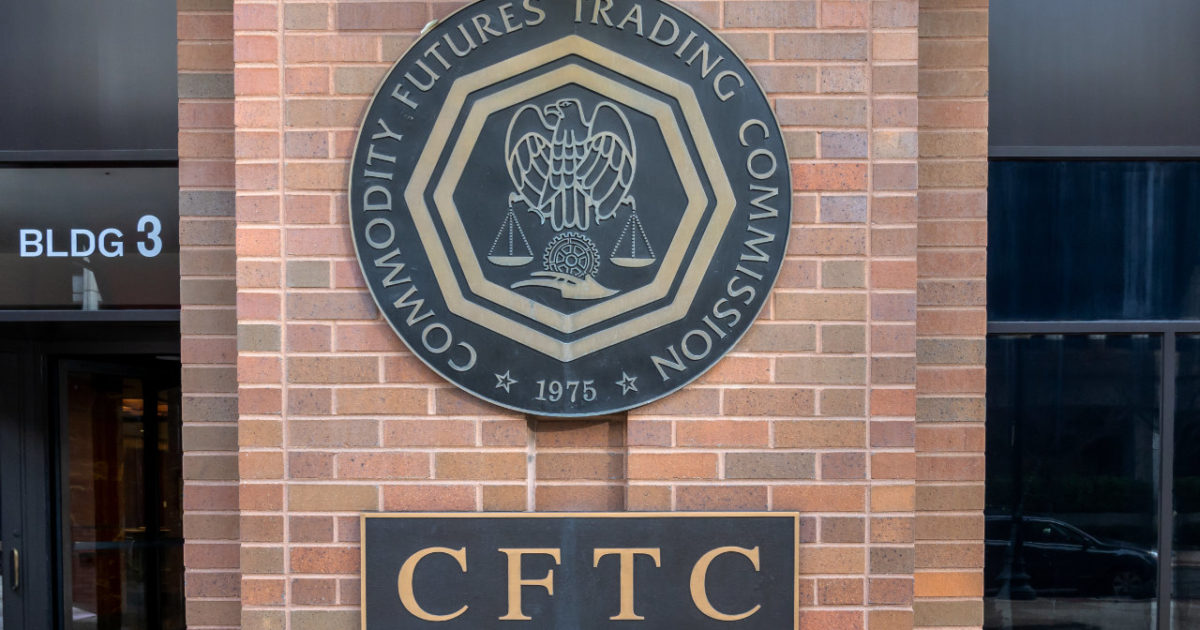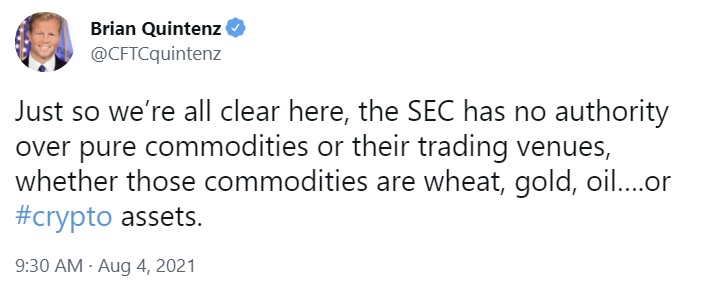Both the U.S. Securities and Exchange Commission (SEC) and the Commodity Futures Trading Commission (CFTC) have claimed jurisdiction over the crypto industry. A CFTC commissioner clarified that pure commodities, including crypto assets, or their trading venues are not regulated by the SEC.
Regulation of Crypto Assets by SEC and CFTC
A commissioner with the U.S. Commodity Futures Trading Commission, Brian Quintenz, clarified Wednesday that pure commodities, including crypto assets, fall under the jurisdiction of his agency.
He tweeted: “Just so we’re all clear here, the SEC has no authority over pure commodities or their trading venues, whether those commodities are wheat, gold, oil …. or crypto assets.”
Quintenz’s clarification followed the statements by SEC Chairman Gary Gensler on Tuesday and Wednesday regarding the regulation of the crypto industry whenever investment products are considered securities.
Gensler stressed that there is not enough investor protection when it comes to crypto assets and their trading platforms. He called for additional authority and resources to protect investors.
The CFTC declared several years ago that cryptocurrencies, including bitcoin, are commodities. The derivatives watchdog’s website explains:
Virtual currencies, such as bitcoin, have been determined to be commodities under the Commodity Exchange Act (CEA).
In addition, the U.S. District Court for the District of Massachusetts ruled in October 2018 that virtual currencies are commodities and the CFTC has the power to prosecute crypto-related fraud.
Over the years, the CFTC has been working closely with the SEC on consumer protection relating to crypto assets. They have jointly issued several Investor Alerts on topics such as funds trading in bitcoin futures and websites promoting fraudulent crypto trading.
The Digital Asset Market Structure and Investor Protection Act introduced last week by U.S. Representative Don Beyer provides the SEC with authority over “digital asset securities” and the CFTC with “authority over digital assets.”
What do you think about the clarification by the CFTC commissioner about the SEC’s jurisdiction over crypto assets? Let us know in the comments section below.
Image Credits: Shutterstock, Pixabay, Wiki Commons





